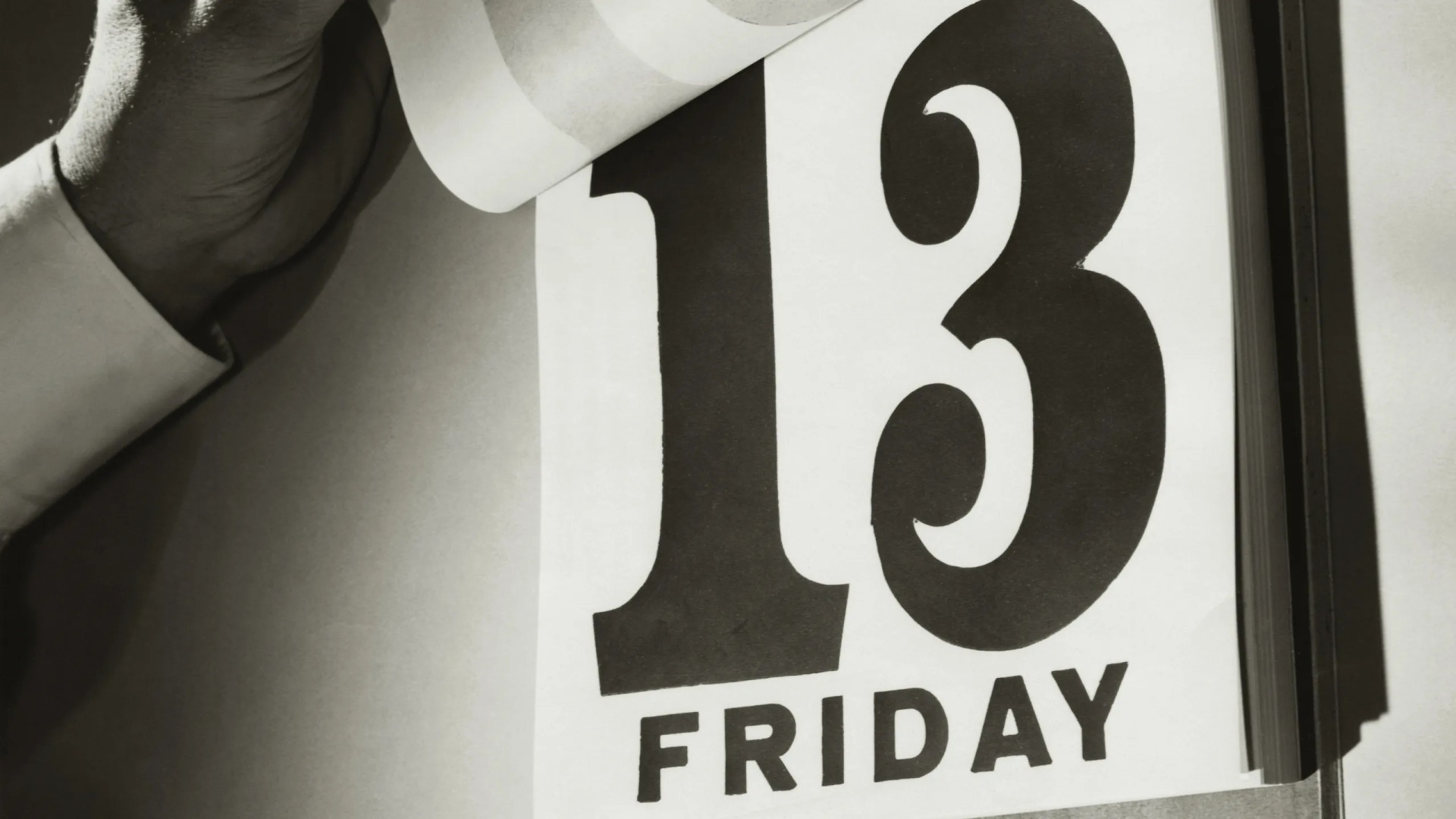Comments
- No comments found

The fear or aversion to Friday the 13th is known as "paraskavedekatriaphobia" or "friggatriskaidekaphobia."
This superstition is rooted in several factors, contributing to the widespread unease associated with this date.
The Last Supper: Some believe that the fear of Friday the 13th can be traced back to biblical times. According to Christian tradition, there were 13 individuals present at the Last Supper on a Thursday, and the crucifixion of Jesus followed on a Friday, making it an ominous day.
Norse Mythology: In Norse mythology, there is a story about a banquet in Valhalla attended by 12 gods. Loki, the trickster god, was not invited but crashed the party, making a total of 13. Chaos ensued, and it ultimately resulted in the death of the beloved god Balder.
The number 13 has long been considered unlucky in many cultures due to its irregularity, with 12 being a more "perfect" number, often associated with completeness (e.g., 12 months in a year, 12 zodiac signs).
Over the years, various movies, books, and superstitions have perpetuated the notion that Friday the 13th is a day filled with bad luck, accidents, and misfortune. The "Friday the 13th" film franchise, featuring a masked serial killer, further cemented these fears in popular culture.
Knowing about the superstition can sometimes lead people to be more cautious or anxious on Friday the 13th. This heightened awareness can potentially make accidents or misfortunes feel more significant, even if they occur on other days as well.
It's important to note that not everyone fears or hates Friday the 13th, and many consider it to be just another day. Superstitions and beliefs around specific dates and numbers vary widely from person to person.
it's essential to understand that superstitions and beliefs vary widely from one culture to another. Here are some global perspectives on the fear of this supposedly unlucky day:
Italy: In Italy, it's not Friday the 13th but Tuesday the 17th that is feared. The number 17, when written as XVII in Roman numerals, is an anagram for "VIXI," which means "I have lived" or "I am dead." This connection to death makes Tuesday the 17th an unlucky day.
Greece: Similar to Western superstitions, the Greeks consider Tuesday the 13th as an unlucky day, as it's associated with the fall of Constantinople.
Spain and Spanish-speaking Countries: Tuesday the 13th, or "martes trece," is considered an unlucky day in Spanish-speaking cultures, much like the Western superstition of Friday the 13th.
Nordic Countries: In Nordic countries, Tuesday is often associated with bad luck, similar to the Spanish-speaking cultures' martes trece.
Japan: In Japan, the number four (shi) is considered unlucky because it sounds like the word for death (also shi). Thus, some buildings skip the fourth floor similar to how Western buildings sometimes skip the 13th floor.
India: In Hindu culture, the number 13 is not inherently unlucky. However, superstitions around certain days and numbers exist, varying from one region to another.
China: In Chinese culture, the number four is considered unlucky because it sounds similar to the word for death. Conversely, the number eight is considered lucky due to its phonetic similarity to the word for wealth or prosperity.
Mexico: While Friday the 13th is a well-known superstition, there's a specific fear of "martes trece" (Tuesday the 13th) in Mexico, which is considered a day of bad luck.
The fear of Friday the 13th is as much psychological as it is rooted in cultural superstitions. When people believe in the superstition and expect bad luck on this day, they might become more anxious, cautious, or even alter their plans. This behavioral change can potentially lead to a self-fulfilling prophecy, where negative events are attributed to the superstition, reinforcing the fear.
On the flip side, there are individuals who do not subscribe to these superstitions and treat Friday the 13th as any other day. They go about their routines without a second thought.
While these superstitions can be intriguing and sometimes even amusing, it's essential to remember that they're cultural constructs, and their impact varies greatly from person to person. Whether you're superstitious or not, Friday the 13th remains a day where some might tread more cautiously, and others simply go about their business as usual.
Leave your comments
Post comment as a guest